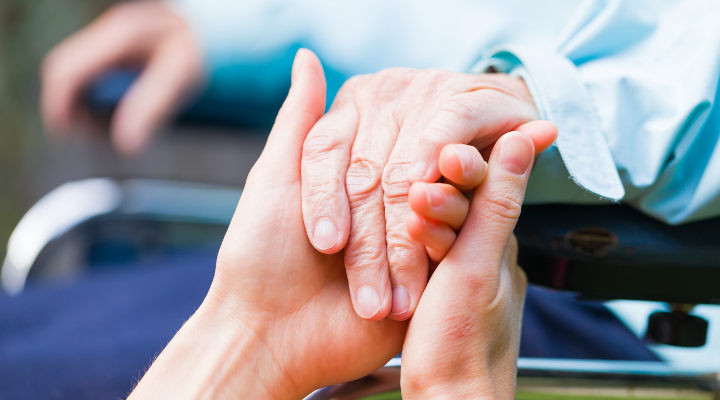They say that when you’re a nurse, you care for people from womb to tomb. You get to experience that wondrous feeling upon hearing an infant’s first cry, but you also get to feel the anguish of witnessing a patient take his last breath.
Yes, we have read so many times about newborn care, care for the sick, care for mothers, care for pediatric patients and many more, but not much has been mentioned about care for the dying. How does one care for someone who is about to die? How do you provide comfort at the end of life? How do you facilitate a “good” death?
How to know if the patient is dying
Recognizing the key signs and symptoms is an important clinical skill in diagnosing dying, however, studies have shown that it is often domestic assistants and families who are better at predicting death than doctors or nurses. This may be because doctors and nurses have to maintain a clinical focus which can sometimes make maintaining a holistic approach difficult.
There are a number of signals indicating that a patient is dying. It is likely, for example, that an advanced cancer patient with no chance of a cure is entering the dying phase when they have been deteriorating over a period of days or weeks and when two of the four criteria listed below apply.
The patient is:
- Bed bound
- Semi-comatose
- Only able to take sips of fluid
- Unable to take tablets
Such a patient is entering the dying phase and will benefit from the appropriate physical,psychological and spiritual care. Such criteria may not be appropriate in patients who do not have cancer but may still provide a useful guide.
Physical Care
Since dying patients become weaker, they find it more difficult to take oral drugs.
- Non-essential drugs should be discontinued.
- Drugs that need to be continued, such as opioids, anxiolytics, and antiemetics, should be converted to the subcutaneous route and a syringe driver used for continuous infusion if appropriate.
- As required subcutaneous drugs should be prescribed according to an agreed protocol (including those for pain and agitation).
- Inappropriate interventions, including blood tests and measurement of vital signs, should be discontinued.
- Evidence is limited but suggests that continuing artificial fluids in the dying patient is of limited benefit and should in most cases be discontinued
- Regular observations should be made and good symptom control maintained, including control of pain and agitation
- Try raising the head of the bed, opening a window, using a vaporizer, or having a fan circulating air in the room to address dyspnea.
- Gently apply alcohol-free lotion to relieve dry skin as well as it can be soothing. Keep the skin clean and moisturized.
- Turn the person from side to back and to the other side every few hours to help prevent bed sores. You may also try putting a foam pad under an area like a heel or elbow to raise it off the bed and reduce pressure. A special mattress or chair cushion might also help.
- Attention to mouth care is essential in the dying patient, and the family can be encouraged to give sips of water or moisten the patient’s mouth with a sponge.
- If urinary incontinence or retention is a problem, catheterization may be needed. Invasive procedures for bowel care are rarely needed in the dying phase.
Psychological care
- Patients’ insight into their condition should be assessed. Issues relating to dying and death should be explored appropriately and sensitively
Mental and emotional care
- Someone nearing the end of life who is alert might understandably feel depressed or anxious. Encouraging conversations about feelings might be beneficial.
- Contacting a counselor may be of help, possibly one familiar with end-of-life issues.
- Near the end of life, music therapy might improve mood, help with relaxation, and lessen pain.
- Listening to music might also evoke memories those present can share.
- For some people, keeping distracting noises like televisions and radios to a minimum is important.
Spiritual Care
- The dying person might find peace by resolving unsettled issues with friends or family.
- Visits from a social worker or a counselor may also help.
- Praying, talking with someone from one’s religious community (such as a minister, priest, rabbi, or Muslim cleric), reading religious text, or listening to religious music may bring comfort.
- Formal religious traditions may have to be observed in the dying phase and may also influence care of the body after death.
- After the patient’s death, relatives should be dealt with in a compassionate manner.
- A leaflet explaining issues related to grieving can be helpful.
Sources:
- https://www.nia.nih.gov/health/publication/end-life-helping-comfort-and-care/providing-comfort-end-life
- https://hospicefoundation.ie/wp-content/uploads/2013/04/7.Caring-for-a-Dying-Patient.pdf
- https://www.ncbi.nlm.nih.gov/pmc/articles/PMC1124925/








